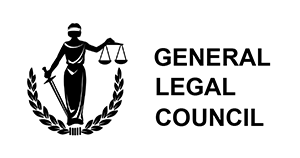
Legislation
.
The Legal Profession Act 2011 (as amended) regulates the professional conduct of Attorneys-at-Law. It is important that when making a complaint against an Attorney-at-Law, that the applicant should review Schedule III the Legal Profession Code of Ethics in the Legal Profession Act 2011 and try to identify which of these rules may form part of the complaint.
The Legal Profession Code of Ethics
Observance of Code of Conduct.
1.—(1) An attorney-at-law shall in the pursuit of the practise of his profession, comply with, and be subject to, this Code of Ethics.
(2) These Rules shall not be construed as a denial of the existence of other duties and rules of professional conduct, which are in keeping with the traditions of the legal profession, though not specifically mentioned herein.
(3) Where in any particular matter, explicit ethical guidance does not exist, an attorney-at-law shall determine his conduct, by acting in a manner that promotes public confidence in the integrity and efficiency of the legal system, and the legal profession.
In Relation to Client
20.—(1) An attorney-at-law shall provide competent representation to his client. Competent representation requires the legal knowledge, skill, thoroughness, and preparation reasonably necessary for the representation.
(2) An attorney-at-law shall always act in the best interest of his client, represent him honestly, competently, and zealously, and endeavour, by all fair and honourable means, to obtain for him the benefit of any and every remedy and defence which is authorized by law, steadfastly bearing in mind that the duties and responsibilities of the attorney-at-law are to be carried out within the bounds of the law.
(3) The interests of his client and the exigencies of the administration of justice should always be the first concern of an Attorney-at-Law, and rank before his right to compensation for his services.
21.—(1) Before advising on a client’s cause, an attorney-at-law should obtain full knowledge thereof, and give a candid opinion of the merits or demerits and probable results, of pending or contemplated litigation.
(2) An Attorney-at-Law should be reluctant in proffering bold and confident assurances to his client, (especially where employment may depend on such assurances) always bearing in mind that seldom are all the laws and facts on the side of his client; and that “audi alterem partem” is the safest rule to follow.
(3) Where a dispute allows for settlement without litigation, an Attorney-at-Law should advise his client to settle the dispute.
22. An Attorney-at-Law shall, at the time of retainer, disclose to his client, all the circumstances of his relations to the parties with whom the client intends to bring an action, and his interest in or in connection with the controversy, (if any), which might influence the client in his selection of an attorney-at-law.
23. An attorney-at-law shall scrupulously guard and never divulge his client’s secrets and confidences, except with his client’s consent.
24. An attorney-at-law shall treat adverse witnesses, litigants, and other Attorneys-at-Law with fairness and courtesy, refraining from all offensive personal references and shall avoid demeaning his client’s personal views.
25. It is the right and duty of an Attorney-at-Law to undertake the defence of a person accused of a crime, regardless of his own personal opinion as to the guilt of the person; and having undertaken such defence, he is bound by all fair and honourable means, to present every appropriate defence that the law of the land permits, so that no person may be deprived of life or liberty except by due process of the law.
26.—(1) An Attorney-at-Law may represent multiple clients only if he can adequately represent the interest of each, and if each consents to such representation, after full disclosure of the possible effects of multiple representation.
(2) In all situations where a possible conflict of interest arises, an Attorney-at-Law shall resolve all conflicts by leaning against multiple representation.
(3) Notwithstanding any other paragraph of this Part, no Attorney-at-Law shall represent both the
(a) mortgagor and mortgagee; or
(b) vendor and vendee
except where both parties seek independent legal advice and present evidence of the written consent of both parties to such joint representation.
27.—(1) An attorney-at-Law shall deal with his client’s business with all due expedition and shall, whenever reasonably so required by the client, provide him with full information as to the progress of the client’s business.
(2) It is improper for an Attorney-at-Law to accept instructions in a matter unless he can handle it without undue delay.
28. Where an Attorney-at-Law determines that the interest of his client requires it, he may, with the specific or general consent of the client, refer his business, or part of it to another attorney-at-law, whether or not a member of his own firm.
29.—(1) An Attorney-at-Law on the record may instruct one or more Attorneys-at-Law to appear as advocates.
(2) A Queen’s Counsel shall be entitled to accept instructions, appear, or do any work without a junior, unless by doing so, he would be unable to properly carry out his instructions or conduct his case.
(3) Where more than one Attorney-at-Law appears as an advocate for the same party in the same proceedings, the decision of who shall lead the conduct of that case shall, subject to the instructions of the client, be settled by the attorneys-at-law representing that party before they appear in court, and shall not be altered during the course of the proceedings, and the leader shall have all authority over the conduct of the case.
30. An attorney-at-Law, including a Queen’s Counsel, who appears with the leader, is entitled to negotiate with the leader, a fee for his services.
31.—(1) An Attorney-at-Law is entitled to reasonable compensation for his services, but should avoid charges which either over-estimate or undervalue the services rendered.
(2) The ability of a client to pay, should not justify a charge in excess of the value of the service rendered, though the client’s indigence may require a charge that is below such value, or even no charge at all.
32. An Attorney-at-Law should avoid controversies with clients regarding compensation for his services, as far as is compatible with self-respect, and his right to receive reasonable compensation for his services.
33. The right of an Attorney-at-Law to ask for a retainer, or to demand payment of out-of-the-pocket expenses and commitments, failing payment of which, he may withdraw from the case, or refuse to handle it, shall not be exercised, where the client may be unable to find other assistance in time to prevent irreparable damage being done to his cause.
34. Where an Attorney-at-Law engages a foreign colleague to advise on a case, or to cooperate in handling it, he is responsible for the payment of the latter’s charges, except where there is express agreement to the contrary, but where an Attorney-at-Law directs a client to a foreign Attorney-at-Law, he is not responsible for the payment of the latter’s charges, nor is he entitled to a share of the fee of the foreign Attorney-at-Law.
35. An Attorney-at-Law may at any time withdraw his services—
(a) where the client fails, refuses, or neglects to carry out an agreement with, or his obligation to, the Attorney-at-Law, as regards the expenses or fees payable by the client;
(b) where his inability to work with colleagues, or to advocate the case of his client in court, indicates that the best interest of the client is likely to be served by his withdrawal;
(c) where his client freely assents to the termination of his services;
(d) where by reason of his mental or physical condition, or other good and compelling reasons, it is difficult for him to carry out his services effectively; or
(e) in cases of conflict, as contemplated under these Rules.
36. —(1) An Attorney-at-Law should not appear as a witness for his own client, except as to merely formal matters.
(2) Where an Attorney-at-Law is a necessary witness for his client, with respect to matters other than such as are merely formal, he should entrust the conduct of the case to another Attorney-at-Law of his client’s choice.
The Legal Profession Act 2011
Click here to download the Legal Profession Act. 2011
Legal Profession Act. 2011 (Amendment)
Government of Grenada Laws of Grenada
Click the button below to view all the Laws of Grenada.
GLC Non-contentious Fees
In accordance with the Legal Profession Act, 2011 the Council is required to provide a Non-Contentious Schedule of Fees to guide Attorneys-at-Law as to what should be charged in Non-Contentious legal matters – the below link provides the current scale for Non-Contentious fees of Attorneys-at-Law practising in Grenada. This schedule does not include disbursements that may be incurred in different types of transactions. Notwithstanding this Schedule of Fees, Attorneys-at-Law and clients should enter into Retainer Agreements which set out the legal services to be provided and the agreed fee/s for the services to be provided as confirmed by Section 52 of the Legal Profession Act. 2011.
General Legal Council
Supreme Court Registry
Church Street, St. George’s, Grenada
Phone: (473) 440-2030
Monday – Friday, 8:00 am – 4:00 pm
Quick Links
FUNDED by IMPACT Justice
POWERED by AGILELIGHT

